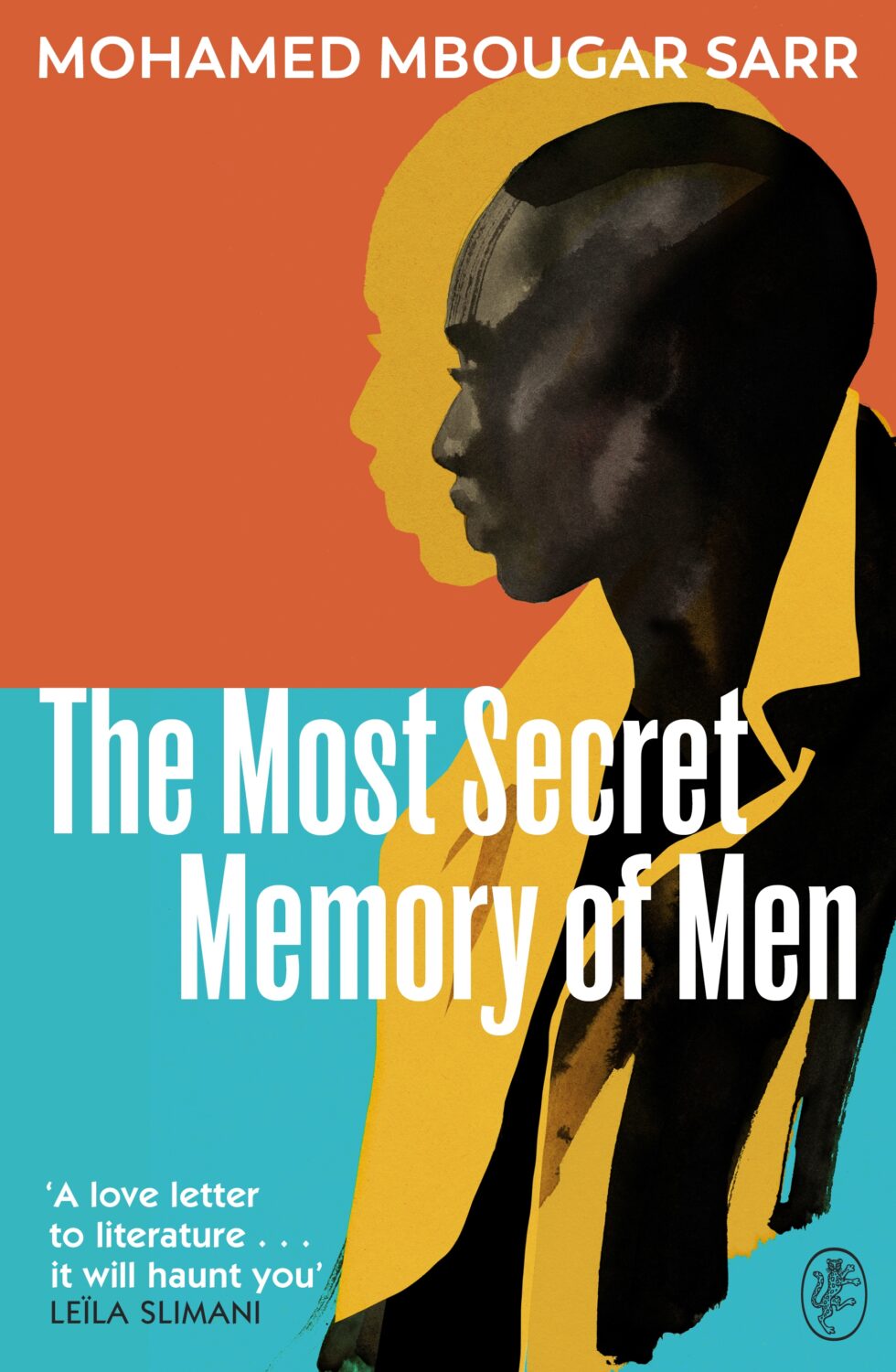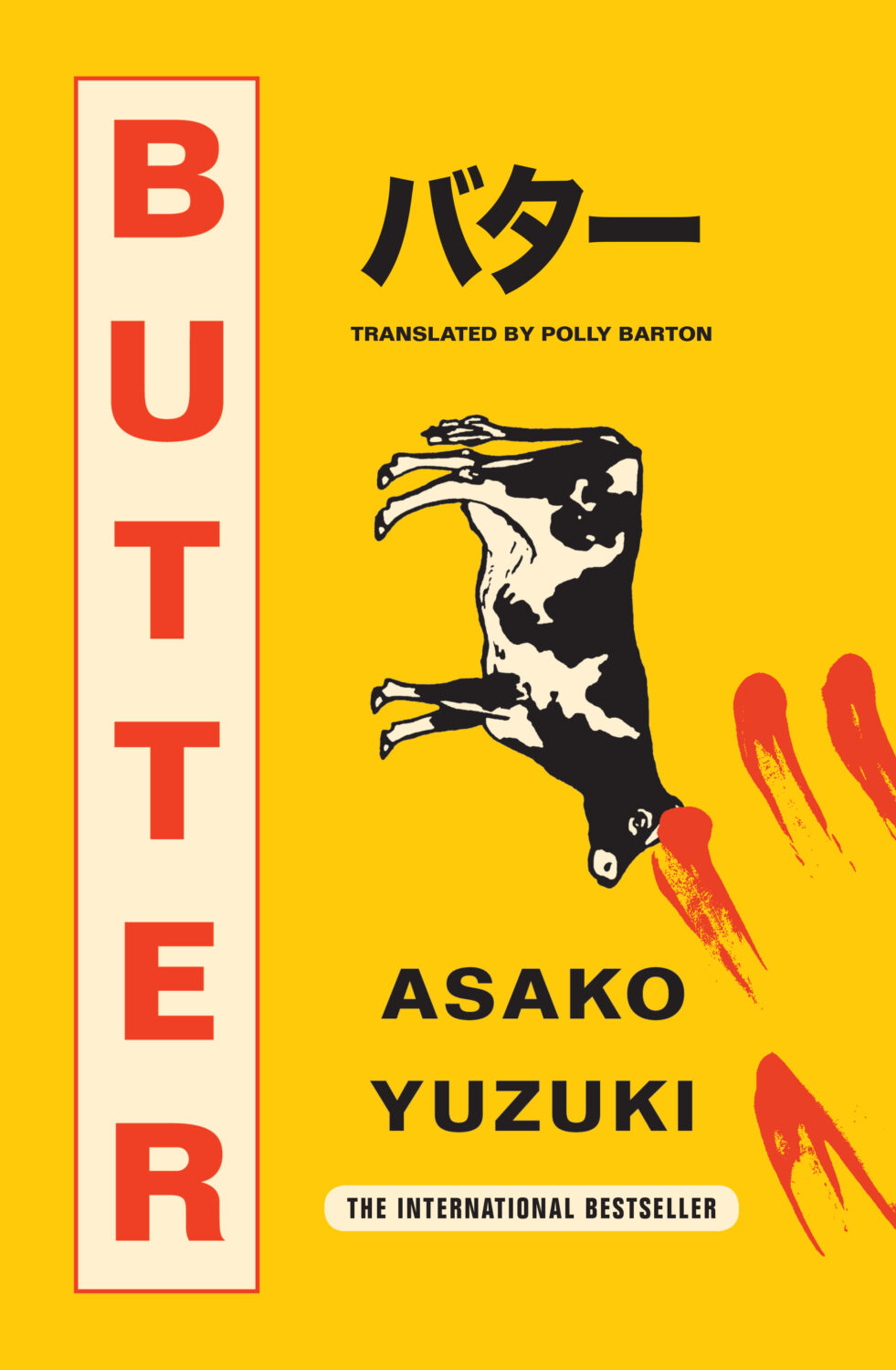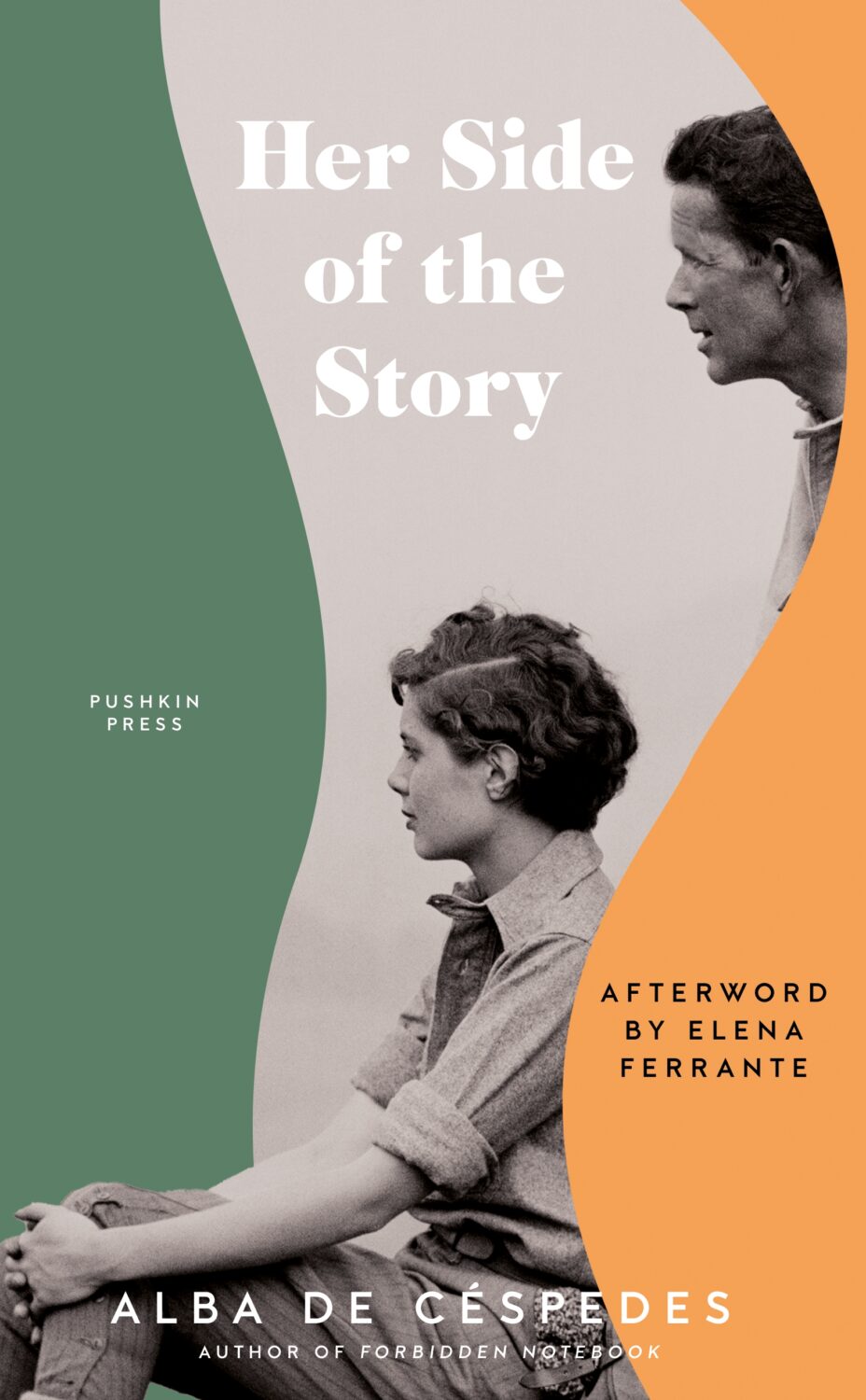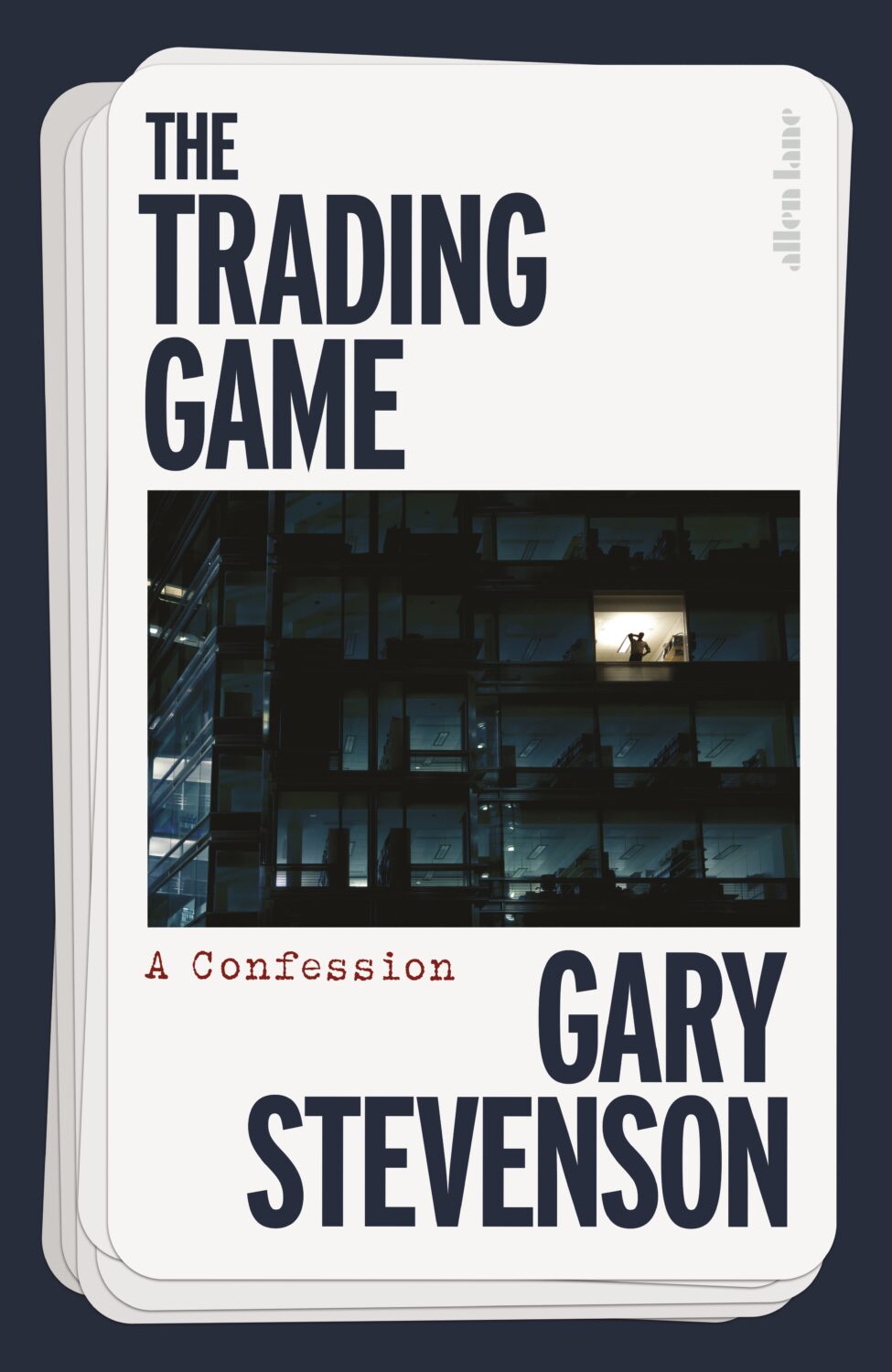Lapsed City Traders, Murderous Chefs, and the Search for Africa’s Disgraced Bard: Five Books to Read Now
By Bartolomeo SalaIt’s become a habit among publishing professionals (or anyone with the faintest stated allegiance to literature, for that matter) to treat “true” books as an endangered species, an odd if cherished relic destined sooner or later to obsolescence. This might have less to do with any real, imminent threat (readers don’t seem to be disappearing any time soon!) than a publishing landscape dominated by a few, oversized players fixated on steady returns and mineable trends over making a lasting cultural mark. There are exceptions of course, with plenty of works and authors, sometimes in translation, to get excited about. Here’s five books published in the last month you shouldn’t miss – the first instalment of a new Something Curated Books column, whose aim will be to regularly help you find the ones worth reading.
FERVOUR, Toby Lloyd

Sceptre, £16.99
I am a sucker for stories that can be read on a multiplicity of levels. Also, I happen to harbour a soft spot for Jewish American authors and knotty family dramas featuring troubled father/son relationships. On the surface, Fervour is a (very) dark comedy about a suburban Jewish family that has as much to do with Emma Seligman’s deliriously funny Shiva Baby as with Death of a Salesman. On another, deeper level, it is an exploration of the trappings of Jewishness that – by deploying multiple (often unreliable) narrators and point of views, as well as making an ample use of irony and references to the Old Testament – delivers a haunting account of all the ways in which identity can be a straitjacket.
The Rosenthals are orthodox Jews living in a high-achieving, largely secularised milieu in north London. But the way they understand their experience is inflected by their religious mindset and historical memories of all-too-present past traumas, and as such, their misadventures and misunderstandings take outsized, Biblical proportions. The Kabbalah-inflected, horror storyline that runs through the narrative and then detonates in portentous fashion in the final act is an unexpected extra ingredient in a novel as deftly put together as is it thrilling to read. 10-out-of-10.
THE MOST SECRET MEMORY OF MEN, Mohamed Mbougar Sarr

Harvill Secker, £20.00
Although perhaps not as common in English, novels based on quests after a long-forgotten literary forebear have become a staple, almost sub-genre, of literary fiction since the publication of Roberto Bolaño’s masterpiece The Savage Detectives. Almost invariably, these are pale, tired imitations. However, The Most Secret Memory of Men by Senegalese author Mohamed Mbougar Sarr – which won the Goncourt (the French version of the Booker) in 2021 – perfectly succeeds in its homage by bending its narrative form to its own ends.
The novel, whose title and epigraph directly quote a passage from The Savage Detectives, follows Paris-based Senegalese author Diégane Later Faye as he sets out to find TC Elimane, the long-forgotten author of the “lost” masterpiece of African literature The Labyrinth of Inhumanity. As it happens, Elimane all but disappeared not long after publication, since French critics who couldn’t accept the originality and genius of the work, accused him of plagiarism. What became of him? More importantly, why is Faye so set on finding him 80 years later?
A writers’ book through and through – this might be a tad too meta and literary for some, but it is shot through with an irresistible, youthful energy and humour (as well as a number of jabs at the French literary scene), and as a whole, it stands as a wry reflection on the legacy of colonialism and the difficulty of finding one’s own voice in a literary culture that essentialises as it excludes and pigeonholes.
BUTTER, Asako Yuzuki

Fourth Estate, £14.99
Taking its cue from a real-life case, Butter by Japanese author Asako Yuzuki tells the story of journalist Rika Machida as she gets increasingly obsessed with serial killer Manako Kaiji – a woman who has made the headlines of major news outlets after murdering several wealthy men she had previously convinced to pay for her cooking classes. Since being arrested, Kaiji has refused to talk to the press; however, Machida is able to get close to her via an unusual route – in a letter, she asks her for the recipe of a beef stew.
This book is utterly one-of-a-kind: an idiosyncratic deep-dive in the world of food (and murder), an examination of the nature of misogyny in Japanese society, exploring the impossible, often contradictory imperatives by which Japanese women must abide.
HER SIDE OF THE STORY, Alba de Cespedés

Pushkin Press, £19.00
De Cespedés is only the latest of a handful of Italy’s mid-century female literary giants that have been rediscovered thanks to the success and influence of Elena Ferrante (the other two being, of course, Natalia Ginzburg and Elsa Morante). An essay by the author of the Neapolitan Novels appears as an afterword in this new translation by Jill Foulston (the novel, largely biographical, was first published in 1949) and indeed the debt is quite apparent.
Set during WWII, it follows Alessandra, a young woman determined not to repeat the fate of her artistic mother Eleonora, a piano teacher who died by suicide after pursuing an affair. When she falls for Francesco, an anti-fascist professor and later a member of the resistance, she is adamant her marriage won’t follow the same sad script, but soon enough their relationship seems to fall into the same traps. Due to his political engagement, Francesco becomes increasingly distant and absent, and Alessandra finds herself unable to withstand his quiet indifference and betrayal.
Admittedly, the story can suffer from melodrama in places, but 75 years on, Her Side of the Story still stands as a powerful dissection of marriage as a repressive institution relegating women, averse to the sincere expression of love between two human beings.
THE TRADING GAME, Gary Stevenson

Allen Lane, £14.99
As a fan of Stevenson’s YouTube channel, in which the author, with brash, almost Travis Bickle-esque style, dissects various aspects of economic inequality in Britain – I confess I had really really high hopes for this one.
Admittedly, this is not really an exposé of the workings of corporate finance and all the nefarious ways in which it contributes to worsening the lives of millions. Rather, it is more a straightforward rags-to-riches personal narrative in which the author traces the trajectory that took him from disadvantaged youth growing up in East London to City Bank’s best trader globally. He also gives the reasons as to why he felt compelled to give it all up and become such a vocal advocate in the fight against inequality.
As such, it suffers a bit from the tropes of the genre: muddled nostalgia, the benefit of hindsight, and more. And some might be put off by Stevenson’s self-aggrandising, swaggering tone. Even so, the book is gripping. (I got through the first hundred pages, in which he explains how he landed his first internship after figuring out the card game that gives the book its title, in the blink of an eye and missed my stop on the tube).
A morality tale about how money (or the utter lack thereof) can seriously mess you up and ruin the relationships with the people around you, it’s at the top of The Times’ Bestselling Non-Fiction Hardbacks chart for a reason.
Bartolomeo Sala is a writer and reader based in London. His writing has appeared in Frieze, Vittles, and The Brooklyn Rail. Header image courtesy of Allen Lane, Pushkin Press, and Sceptre.